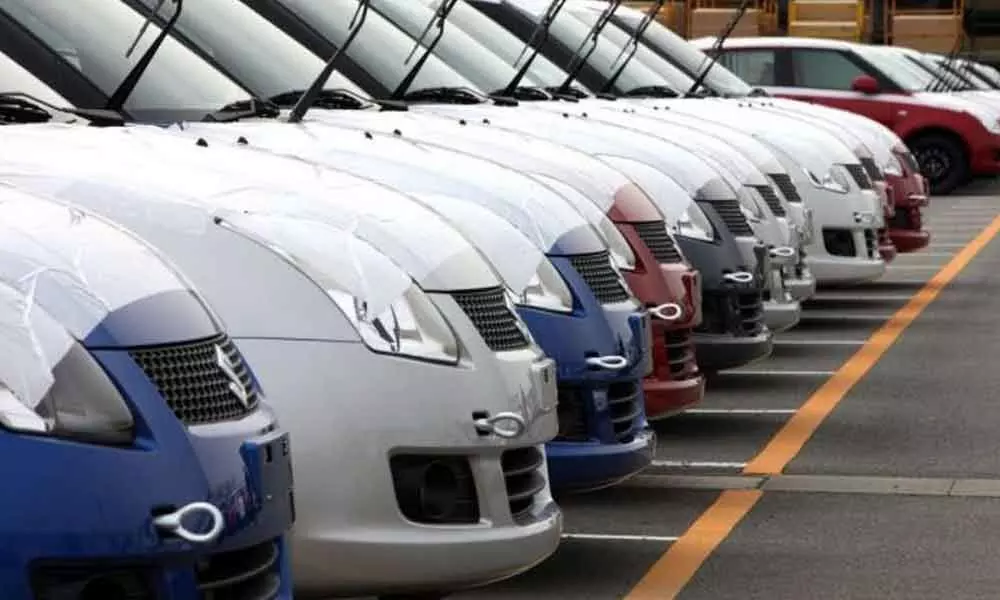No festive cheer for automakers

Is India’s automobile sector heading into deeper crisis? It looks like so going by the sales in November.
Is India's automobile sector heading into deeper crisis? It looks like so going by the sales in November. As per the data announced by automobile industry body SIAM on Tuesday, passenger vehicle sales fell 0.84 per cent in November to 2.63 lakh units from 2.66 lakh units in the same month last year.
The decline was much deeper in domestic car sales. Data shows car sales in Indian market fell by 10.83 per cent to 1.60 lakh units against 1.79 lakh units in November 2018.
However, utility vehicle segment proved to be the saving grace for the sector as dispatches in this segment went up by 31.7 per cent to 92,739 units from 69,884 units a year ago. Van sales nosedived 34.32 per cent last month.
This is not the first month that automobile sales have ended in red. The auto sales declined for 11 consecutive months up to September this year.
However, sales picked up in October this year and ended marginally higher compared to the same month last year thanks mainly to festive demand.
It was expected that festive demand would sustain, and automakers would post positive sales in November and beyond. But that did not happen.
Industry representatives feel that November numbers reveal that industry continues to face challenges. They say last month's sales came on a lower base recorded in the same month last year.
In all probability, the passenger vehicle sales will remain sluggish in the remaining months of the current financial year which ends in March next years. So, this trend should worry the industry.
But the adverse impact of the slowdown in automobile sales is already being felt in related sectors. Automotive Component Manufacturers Association (ACMA), the industry body of auto parts makers, revealed that the key sector's turnover dropped by 10 per cent to Rs 1.79 lakh crore during April-September period this fiscal from Rs 1.99 lakh crore in the same six months period a year ago.
The sector reduced its production by 15-20 per cent. As consequence, over one lakh temporary workers lost their jobs. However, exports and replacement market provided a little succour for the sector as these segments registered 2.7 per cent and 4 per cent sales growth respectively.
This de-growth in sales has come at a time when the auto component industry is investing a whopping Rs 35,000 crore to upgrade their facilities to make their products comply with BS-VI emission norms.
There are several reasons for fall in auto sales. As BS-VI emission regulations are kicking in from April 1, 2020, some people seem to be holding back their purchases in order to lay their hands on the vehicles with latest technologies.
In view of this, the auto sector is in talks with the central government to introduce BS-VI fuel from February next year so that companies can push BS-VI compliant vehicles.
Ride-hailing cabs such as Ola and Uber also left an impact as millennials are using these services instead of buying cars. Talk of electric vehicles replacing petrol, diesel vehicles, also has hit the sales.
Automakers need to re-orient their production capacities to survive amid changing market dynamics.














